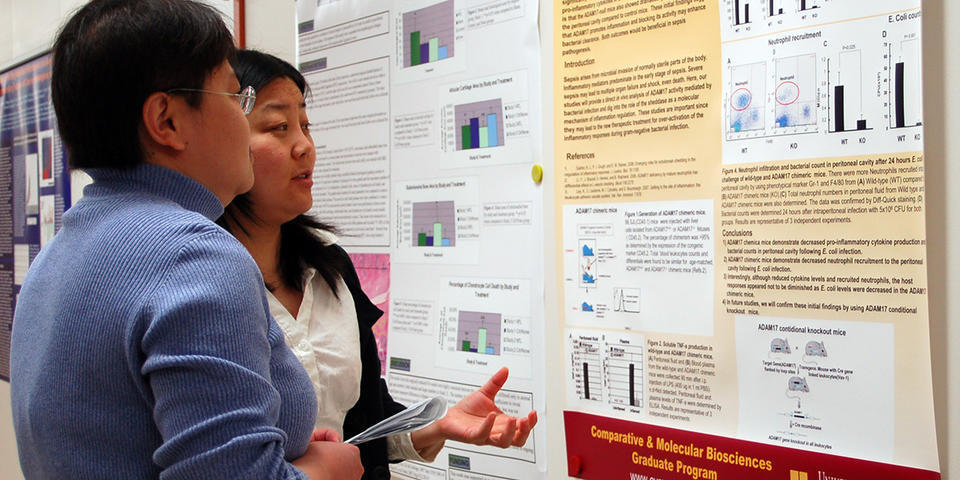
Foremost in our MS and PhD training models, students will achieve scientific acuity and technical excellence through high quality impactful mentored thesis research, supplemented through rigorous core coursework. In addition to this however, we also offer students a variety of experiential learning opportunities to develop the excellent “transferable” skills that employers seek.
This includes endowing graduates with excellent communication, teamwork, critical thinking, leadership, and project management skills. Depending on their interests and research focus area, students may also take advantage of programs designed to instill a broad understanding of our multifactorial, interconnected food networks, and the ability to navigate the political, cultural, economic, and consumer influences that determine local and national food policy.
Examples of specific professional and career development opportunities include, but are not limited to:
- Formal training and seminars to build communication skills
- Formal training in grant writing, and grant writing experience
- Institute on the Environment Trainings and Events and IonE Graduate Leaders. Building communication and leadership skills
- Preparing Future Faculty Program. Formal training in teaching, and opportunities for teaching experience
- MnDRIVE Program. Understand our interconnected food systems with a view to ensure food security, reduce food loss, limit the impact of infectious diseases on production, improve food safety, and protect the environment through alternative agricultural practices
- Equity and Diversity Certificate Program
- CVM Travel Awards. Travel for research, conferences, and short courses
- Seminars and Conferences. Present research findings, build knowledge, and network to build collaborations
Student experiences
Learn more and apply today
Need additional information or advice?
Interested or current students should contact [email protected], Interim Associate Dean of Graduate Programs.